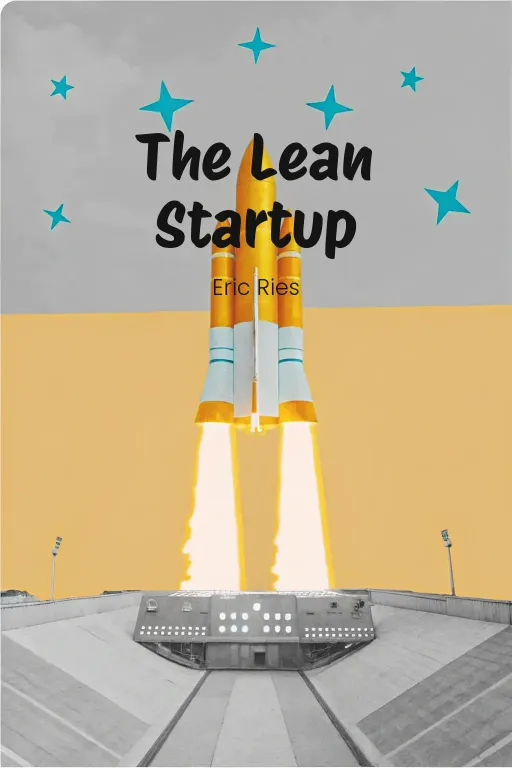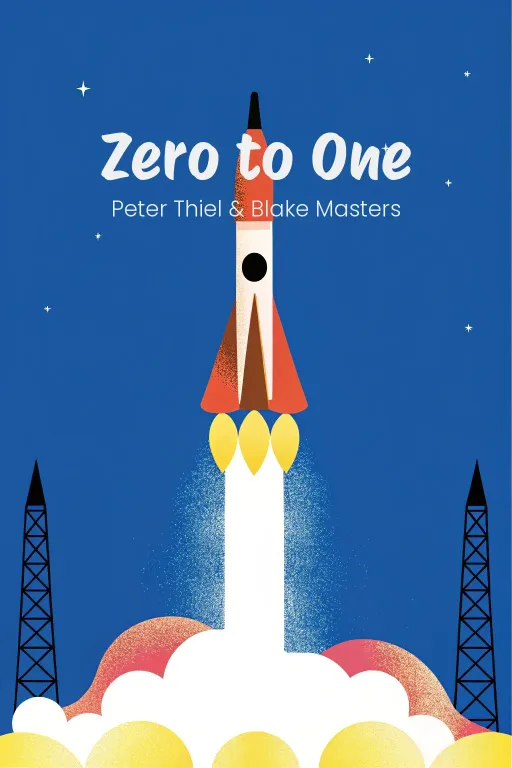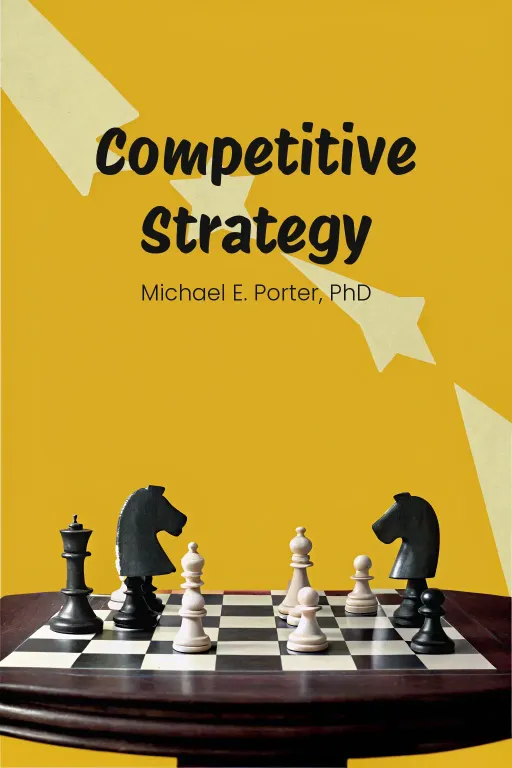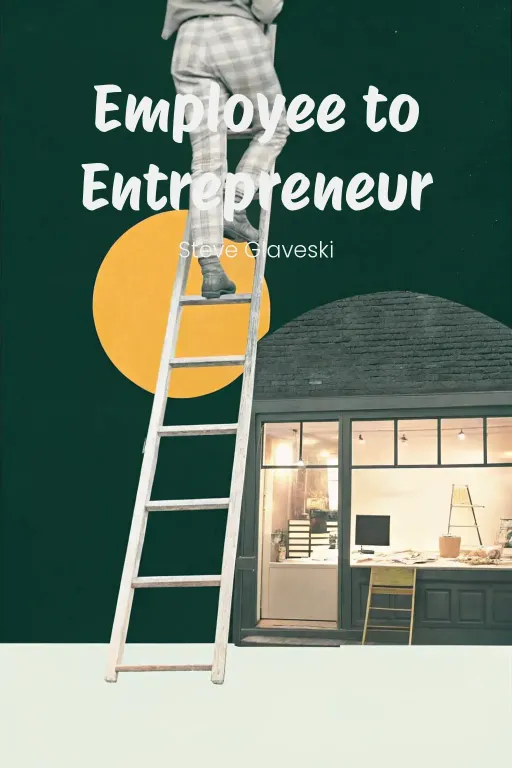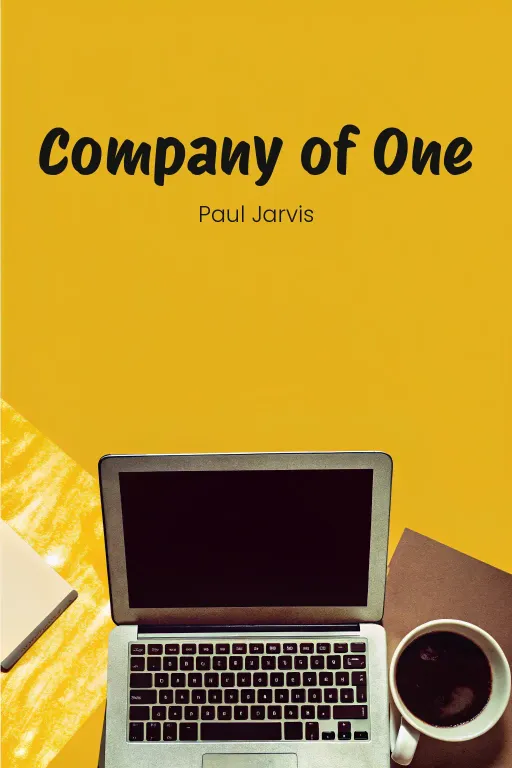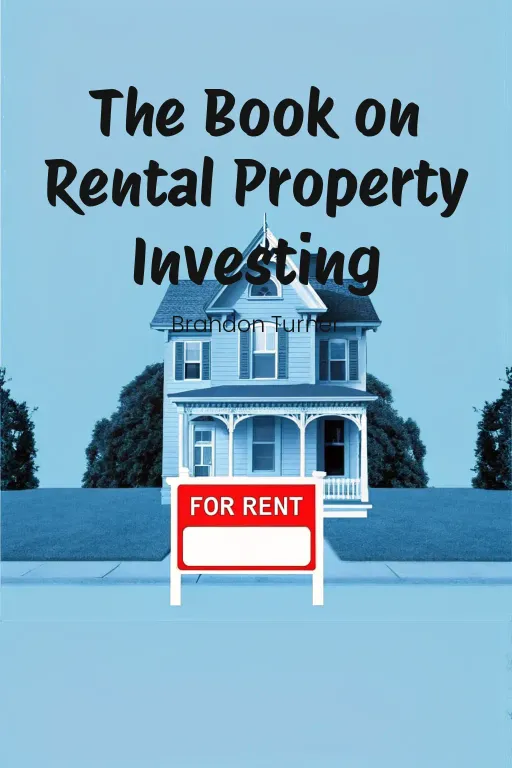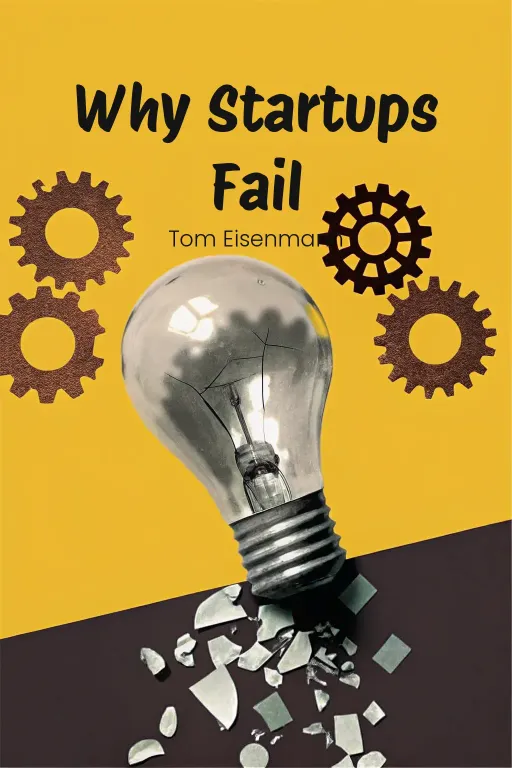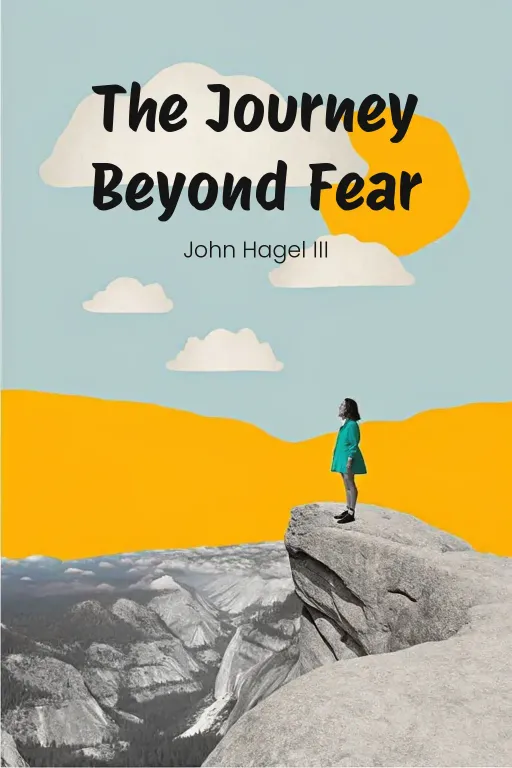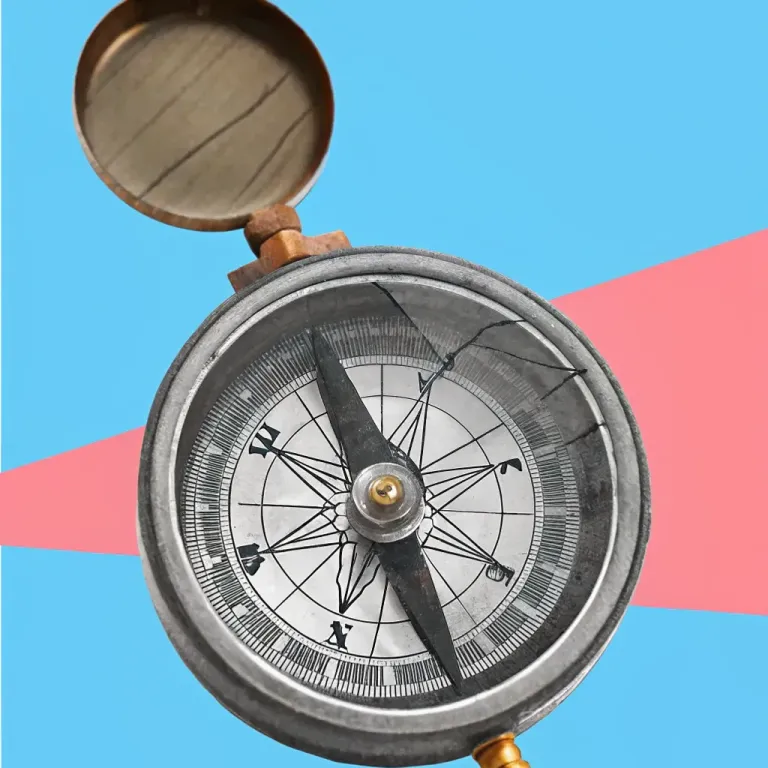
Startup Therapy: Your Baggage, Your Business
Podcast by Let's Talk Money with Sophia and Daniel
A Painfully Honest Field Guide to the Startup World
Startup Therapy: Your Baggage, Your Business
Part 1
Daniel: Hey everyone, welcome back! Today, we're diving into a book that I think is essential reading for anyone involved in the startup world: Lost and Founder by Rand Fishkin. It's definitely not your typical Silicon Valley success story; it's a “really” raw and honest look at what it's “really” like to build a company. Sophia: <Scoffs> Oh, let me guess. It's another one of those stories… hustle, heartbreak, some kind of miraculous recovery, and then "wisdom" dispensed from on high, right? Because the world is just clamoring for more founder "wisdom" these days. Daniel: Not exactly, Sophia. Fishkin actually pulls back the curtain on those glamorized myths of startup life, and he does it with a brutal honesty that's kind of refreshing. He's not trying to sell you on the overnight success fantasy. Instead, he shares the nitty-gritty of what happens when things go wrong—navigating venture capital, dealing with burnout from insane expectations, all of that. Sophia: So, like, a survival guide for people who enjoy startup-induced pain? Daniel: <Chuckles> You could look at it that way, but it's more than that. The stories Rand shares about his own company, Moz, are incredibly personal, but they also resonate on a universal level. He talks about how his own fears, insecurities, and ambitions directly shaped the company's culture, and, well, not always for the best, you know? Sophia: Okay, that sounds like a welcome dose of self-awareness. So where are we going with this conversation today, Daniel? What's the roadmap for unpacking this book? Daniel: We’re breaking it down into three key takeaways. First, how a founder's stuff – their personal baggage “really” – seeps into their business, often in weird, unhealthy ways. Then we’ll unpack the harsh realities of raising capital. Spoiler alert: Money fixes absolutely everything…said no one ever! <Chuckles> And finally, we’ll look at sustainable growth powered by ethical leadership. Think of it as a journey: We start with self-reflection, then we dodge the financial landmines, and finally we build something that actually lasts. Sophia: Right, sounds like we're about to wade into some pretty murky territory. Alright, Daniel, let's see where this maze leads us.
Founders' Influence on Startups
Part 2
Daniel: So, diving into these murky waters, let’s start with something really interesting from the book: how a founder's personal baggage can actually shape their startups, often without them even realizing it. Fishkin's really open about this, especially his own struggles at Moz. Sophia: Baggage, huh? Are we talking about the kind you check at the airport or the kind that follows you into every board meeting? What's the story here? Daniel: Oh, definitely the latter. Fishkin talks about how his family’s past financial troubles—I mean, debt collectors chasing their business—left him with a deep fear of financial instability. And he didn’t just leave that behind when he started Moz. It actually seeped into how he ran the company, especially early on. Sophia: So, conservatism over risk-taking, right? It's pretty common to let those fears turn into being overly cautious. Daniel: Exactly! His decisions were driven more by avoiding financial disaster than by chasing long-term opportunities. For example, he was hesitant to invest heavily in areas with uncertainty – like new markets or initiatives that didn’t have an immediate payoff. But here’s the thing: it wasn’t just about being “responsible”; it was his unexamined fear driving the choices, which sometimes limited Moz’s potential. Sophia: That’s fascinating, though not entirely surprising. I mean, people are basically walking collections of past experiences, bringing their fears and assumptions into the boardroom. But how does a founder actually deal with that? How do you separate your gut reactions, shaped by your baggage, from what's best for the business? Daniel: That’s a great question. Fishkin suggests a few ways to handle this. One is through introspection – pausing to really examine how your emotional history might be clouding your judgment. He also emphasizes talking to trusted advisors, people who can challenge your perspective or point out when your mindset might be steering you wrong. Sophia: So, like an accountability partner for your brain? Makes sense. What I find interesting, though – and maybe a little ironic – is that founders are often celebrated for their "vision." But we’re also saying their vision might be distorted by their own issues. Daniel: Exactly! Founders aren’t superheroes; they don’t suddenly become immune to human psychology. Their insecurities, biases, and fears can ripple through an entire company. Fishkin’s transparency about these struggles is part of what makes the book so valuable, really. Sophia: Speaking of psychology, let's switch gears to bias. You touched on this earlier – founders being hyper-focused on what they love versus addressing what's actually needed. How did that play out for Fishkin? Daniel: Oh, this one is classic Rand Fishkin. In the beginning, he was incredibly passionate about SEO and web design, so naturally, he poured his energy into the aspects of Moz that aligned with those passions. Sounds great, right? Until you realize that, as CEO, his role isn't just to get into the technical weeds; it's to lead. Sophia: Let me guess, his tunnel vision meant some key leadership responsibilities got sidelined? Daniel: Precisely. He admits that his passion sometimes got in the way of making broader strategic decisions or empowering his team. He learned, over time, that being a founder means stepping back from the things you personally enjoy and focusing on what’s needed to enable your team's success. It’s a tough lesson, especially for founders who often start companies because they’re passionate about a specific field. Sophia: So, basically, founders need to let go of their "first love" and embrace the bigger picture. How do you think someone does that without, you know, losing the spark entirely? Daniel: It’s not about losing the spark—it’s about channeling it differently. Fishkin talks about actively identifying his biases and restructuring his role around supporting others rather than indulging his personal preferences. For instance, this could mean delegating technical work to the experts on his team and refocusing his energy on steering the company’s vision. Sophia: It sounds like putting on a new pair of glasses to see things from every angle. But you’ve got to admit, knowing your blind spots is always easier said than done. Daniel: True, but there are tools that can help. Fishkin suggests things like 360-degree feedback, mentoring, and even journaling as ways to identify recurring patterns in your leadership – and address them before they do harm. Sophia: Okay, so we’ve got founders wrestling with emotional baggage and bias. Let's talk about how this all feeds into company culture, because let's be honest – that’s where the real fallout happens. Did Fishkin see his own struggles reflected in Moz’s culture? Daniel: Oh, absolutely. There's a vivid example that sticks with me, during one of Moz's financially turbulent periods, Fishkin’s own anxieties started to pervade the office. Employees picked up on that tension, and it led to what he described as a morale dip. The lack of transparent communication from leadership only amplified the sense of uncertainty. Sophia: That’s tricky, though—founders are people, too. You can’t expect them to be immune to stress, right? So what’s the balance between being a vulnerable human and making sure your anxiety doesn’t infect your team? Daniel: It’s a delicate balance, no doubt. What Fishkin ultimately found was that vulnerability, when done right, could actually work in his favor. He started being more open with his team about the challenges he was facing, both personally and professionally. This honesty cultivated a sense of psychological safety—the idea that employees feel safe to voice concerns or admit mistakes without fear of judgment. Sophia: Ah, psychological safety. So instead of letting his anxiety act as an invisible storm cloud over the team, he turned it into an invitation for dialogue. That's smart—like transforming a weakness into a leadership tool. Daniel: Exactly! One standout moment is when Fishkin had a one-on-one conversation with a developer, Kenny Martin, who voiced his doubts about Moz’s strategic direction. Fishkin could’ve shut him down, but instead, he leaned in and used the moment to build mutual trust. That kind of openness set the stage for Moz to foster collaboration and innovation, even during tough times. Sophia: Honestly, that sounds like the ideal startup utopia: honest conversations, trust, and innovation. But do you think that kind of culture can even survive once a startup scales? Daniel: That’s a great question. It definitely gets harder to maintain as teams grow and structures become more rigid. But Fishkin emphasizes that leaders who embrace self-awareness and vulnerability early on can build a foundation for sustaining that culture, even at scale. It’s about embedding trust as a core value, not as a one-off tactic. Sophia: So if I’m hearing you right, building a great culture starts with founders taking a hard look in the mirror, owning their baggage, and being willing to adapt. Easier said than done, but Fishkin gives us the cheat codes I guess.
Raising Capital and Financial Realities
Part 3
Daniel: So, after exploring how founders shape their startups, it's natural to delve into the challenges of raising capital. It’s one thing to navigate those internal struggles, but when you add external pressures like venture capital, the stakes become much higher, both personally and professionally. Sophia: Ah, money! The lifeblood, or sometimes the fatal flaw, of a startup. So, is venture capital really the silver bullet everyone makes it out to be? I'm guessing there's a bit more to it than that? Daniel: Precisely, Sophia. Raising capital certainly brings opportunities, but it also comes with strings attached—strong ones. Fishkin doesn’t shy away from showing how those strings can ensnare founders, particularly if their goals diverge from those of their investors. Sophia: Wait a minute. Aren’t founders and VCs supposed to be on the same side? Like, "all for one, one for all"? Daniel: Ideally, yes, but in practice? Not always. A key issue Fishkin points out is this misalignment. Founders seek capital from VCs to grow, but VCs are focused on securing significant returns for their limited partners. They want rapid scaling, a lucrative exit, either through acquisition or an IPO. Essentially, that pressure is always there, hanging over the founder’s head. Sophia: Got it, the "10x return" dream. So that's the rub, right? VCs need a home run or two because most startups strike out. That means they're pushing for explosive growth, whereas the founder might be aiming for something more sustainable. Daniel: Exactly. Fishkin illustrates this dynamic with Moz’s initial venture funding. Back in 2007, Ignition Partners invested $1 million, valuing the company at $7.1 million. This investment wasn’t just a vote of confidence; it came with expectations. Ignition wasn’t interested in incremental wins; they wanted that 10x return. That made hyper-growth a priority, even if it wasn't ideal for Moz's long-term sustainability. Sophia: Okay, playing devil's advocate here, isn't rapid growth the whole point? If you're not aiming for the stars, why bother? Daniel: Growth is definitely important, but Fishkin argues that focusing solely on exponential growth can come at a cost. Take acquisitions, for instance. Imagine an offer of, say, $40 million. For most founders, that's life-changing money—financial freedom. But for VCs? That barely makes a dent in their expectations. So they'll push to hold out for a $100 million exit, or even more. It’s constantly weighing what's meaningful to the founder versus what's profitable for the investor. Sophia: Right, but wasn’t Fishkin the CEO? Couldn’t he just... decide? Does taking VC money automatically mean handing over the reins? Daniel: That’s the critical point. Once you take VC funding, you're playing by their rules. They get board seats, preferred shares, veto power over major decisions. Fishkin grappled with this constantly. Important choices, like rejecting acquisition offers, weren’t entirely his to make. This loss of autonomy can be a shock for founders who thought they'd retain control. Sophia: I see. So, VCs not only set high-pressure performance goals, but they're also in the driver's seat. And here I was thinking running a startup was all about freedom! Daniel: It’s more like walking a tightrope over a canyon. And there’s another financial reality Fishkin talks about: the paradox of "paper wealth." Sophia: Paper wealth? Sounds luxurious. Is it anything related to gold-plated business cards? Daniel: I wish! No, it’s the idea that founders might have equity worth millions on paper, but it’s completely illiquid. That wealth only becomes real during a liquidity event—an acquisition or IPO—and that might take years, if it ever happens. Meanwhile, founders often have modest salaries because investors prioritize cash flow for growth, not personal payouts. Sophia: So, you're saying a founder could build a massively valuable company and still struggle to pay rent? Something feels…off about that. Daniel: It's a brutal reality. And for Fishkin, it was personal. Even as Moz's valuation grew, his family didn’t have the financial stability you'd expect. Plus, there's equity dilution. Every funding round chips away at the founder’s ownership percentage, leaving them with a smaller piece of the pie—something many don’t fully anticipate when they start fundraising. Sophia: Let me see if I get this: the longer you're in the game, the less control you have, and the smaller your reward. Sounds less like entrepreneurship and more like a really slow surrender. Daniel: It can definitely feel that way. Which is why Fishkin stresses the importance of being strategic about funding. Founders need to carefully weigh the trade-offs before taking venture capital. Are they okay relinquishing control? Are they ready for the relentless push for hyper-growth? If not, there are alternatives—bootstrapping, angel investors, even crowdfunding. Sophia: Those sound like more sensible options. What about the boardroom, though? I can see that it's not just numbers that cause disagreement. There are strong egos as well, right? Daniel: Oh, absolutely. Boardroom dynamics can get really tense, especially when you combine founders' emotional investment with VCs' financial goals. Rand describes a hypothetical $450 million acquisition offer for a fictional company. The founders are excited, but the VCs say no – they think they can get $700 million by scaling further. Now the founders feel trapped, torn between taking life-changing money and the higher-risk gamble the VCs want. Sophia: So, essentially, the boardroom becomes a boxing ring, with everyone fighting for different outcomes. Daniel: Precisely! And the emotional toll of those fights can be huge for founders. Fishkin points out how draining it is to constantly defend your vision while being outvoted or overruled by people whose priorities may not align with yours. It's a stark reminder that taking VC money means inviting this kind of tension into your business—and your life. Sophia: Okay, so the takeaway here is crystal clear: venture capital can boost growth, but it's like signing up for an ultra-high-stakes poker game. The risks are high, the pressure is constant, and founders need to be incredibly aware of whether or not it's right for them. Daniel: Exactly. Fishkin's final word is this: if you're going to take venture capital, understand the trade-offs. Have those difficult conversations about expectations upfront. And if the VC route doesn't suit your goals, don’t be afraid to look at alternatives. Startups aren’t one-size-fits-all. The ability to choose your path is the ultimate power move.
Sustainable Growth and Ethical Leadership
Part 4
Daniel: So, with the financial stuff out of the way, let’s dive into sustainable growth strategies. This is where Fishkin really spells out how startups can build something that lasts. It’s not about those quick wins but about aligning strategy, customer focus, and ethics. Sophia: Okay, so we’ve tackled the founder's inner struggles, dodged the VC money traps, and now we're building lasting empires, right? Daniel: Exactly! Sustainable growth isn’t just luck. It comes from long-term planning, loyal customers, and leaders who lead by example. Fishkin’s approach is a nice contrast to the usual "hack-your-way-to-growth" story you hear about startups. Sophia: Alright, I’m listening. No more growth hacks? Isn’t that a bit… strange in the startup world? Everyone's chasing that magic bullet. Daniel: Well, Fishkin sees these quick fixes – these growth hacks – as empty calories for startups. They might give you a temporary boost, but they disappear quickly, and you’re no closer to building something sustainable. Instead, he uses the “flywheel” approach. Sophia: Flywheel? Like… a hamster wheel? Daniel: More like a well-oiled machine! It’s a physics concept. Think of a heavy wheel; it takes a lot of effort to get it moving. But once it starts spinning, it builds momentum and keeps going with very little effort. Moz’s flywheel was all about consistent, valuable initiatives that built on each other over time. Sophia: So, less hamster wheel, more perpetual motion. Got it. How did they do that in real life? Daniel: By focusing on creating high-quality content that solved real problems in their specific field. Take their "Beginner’s Guide to SEO," for example. Instead of just churning out clickbait, Fishkin and his team pinpointed the biggest challenges their audience faced and created in-depth content to address those head-on. Sophia: Let me guess, a blog post? Because every company has a blog these days. Daniel: Not just a blog post. This guide became the go-to resource for anyone trying to understand SEO, whether they were beginners or experts. It established Moz as a trusted authority, which attracted customers who didn’t just use their tools but stuck around. Over time, the flywheel effect boosted their brand – trust generated traffic, traffic built loyalty, and loyalty led to word-of-mouth growth. Sophia: I see the brilliance. It’s like planting a tree that yields fruit year after year...rather than sticking fake leaves on a twig to fool people. Daniel: Exactly! What’s brilliant about this is how it differs from the growth-hacking approach, which might temporarily inflate your numbers but doesn’t create lasting loyalty. Fishkin argues that real growth comes from a foundation of trust and reliability. Sophia: Which then leads us to customer retention, right? You can’t just drag people in through the front door only to have them sneak out the back. Daniel: Exactly! And Fishkin has some great cautionary tales about that. Early on, Moz tried launching tools like Followerwonk and Moz Content – products outside their core SEO focus. They thought diversification would attract more customers, but it actually confused their existing ones. Sophia: Let me guess, their customers were like, "What is this new, shiny thing? And why isn’t it solving my original problem?" Daniel: Pretty much! Less than 5% of Moz’s subscribers used those new tools effectively. It was a wake-up call. Customers want clarity and value, not a confusing array of mediocre options. They eventually circled back to their core SEO tools, where customer satisfaction and retention were strongest. Sophia: So, by stretching themselves too thin, they risked alienating the very people who made them successful. Let’s get personal here for a second. Why do so many companies fall into that trap? Is it greed, ambition, or just boredom? Daniel: I think it’s often ambition mixed with pressure. Founders and teams are constantly told they need to grow their market share, build new revenue streams, and innovate. But if that ambition isn’t paired with a deep understanding of customer needs, it can backfire. At Moz, they learned the hard way that retention isn’t just easier—it’s actually smarter business. Returning customers provide stable, predictable revenue without the high costs of constant acquisition campaigns. Sophia: Okay, so retention is basically keeping your promises. Stick to what you do best, and do it even better. Speaking of sticking to principles, let’s talk about ethical leadership and that TAGFEE framework you mentioned. How did it actually shape Moz’s culture? Daniel: TAGFEE—transparency, authenticity, generosity, fun, empathy, and the exception—was Moz’s guiding star. Fishkin wove these values into the company’s DNA, shaping decisions, big and small. For example, when Moz faced layoffs during a tough time, the leadership didn’t sugarcoat anything or pass the blame. They communicated openly about the reasons behind those difficult decisions and treated their employees with respect. Sophia: Okay, but that level of openness… it's got to be a gamble, right? Aren't you opening yourself up to criticism or even lawsuits? Daniel: Sure, it’s a risk. But Fishkin argues that transparency builds trust, both with employees and customers. Imagine being a Moz customer during that turbulent period. Would you rather hear the truth about the company’s struggles or some polished corporate spin? For most people, genuine honesty strengthens loyalty, even when things are tough. Sophia: Makes sense. It’s like being in a friendship. You don’t expect them to be perfect, but you do expect them to be real. Did this approach apply to their customer interactions, too? Daniel: Absolutely. Moz actively listened to its customers' pain points, whether through surveys, forums, or direct conversations. When customers were frustrated, Moz listened and adjusted its products based on that feedback. This approach isn’t just ethical; it’s strategic. By empathizing with customers and valuing their input, Moz turned potential problems into opportunities to deepen loyalty. Sophia: So, TAGFEE wasn’t just a feel-good mantra. It actually gave them a strategic advantage. Daniel: Exactly. Fishkin argues that ethical leadership isn’t just the "right" thing to do—it's also good business. Companies that prioritize transparency, empathy, and core values are better equipped to handle challenges because they’ve earned trust from both their employees and customers. Sophia: Alright, summing it up then, sustainable growth sounds less like a sprint and more like building a cathedral, slow, steady, and with strong foundations. From the flywheel method to customer retention and ethical leadership, Fishkin's lessons are a counterpoint to the instant-gratification culture of startups. Daniel: It's a powerful framework. Aspiring entrepreneurs should read this not just as a guide for their companies but as a reflection on the kind of leaders they want to be.
Conclusion
Part 5
Daniel: You know, going through “Lost and Founder” today, it really crystallized some key ideas for me. We talked about how a founder’s past and their personal biases—good and bad—always end up shaping the company they build. Recognizing that, and being really honest with yourself about it, is half the battle. Then we dove into the tricky world of venture capital, and it's not always a bed of roses, is it? Weighing that initial rocket boost of capital against potentially giving up control and maybe even diluting your long-term vision. And finally, sustainable growth and ethical leadership, Rand Fishkin's flywheel and the TAGFEE framework were particularly insightful in terms of how to cultivate trust and build a company that lasts, not just flashes and burns. Sophia: Right, so the big takeaway, at least for me, is that building a startup isn't about these huge, explosive, overnight successes. It's more this slow, methodical process of building a machine that, ideally, keeps humming along even if the founder steps away, right? Founders have to deal with their own, let's call it "stuff," align their funding with what they actually believe in, and really, really focus on keeping customers happy and sticking to core values, instead of chasing those fleeting trends and hype. Daniel: Precisely. And here's a thought for everyone listening, whether you're building a company or just trying to figure out your own path career. Are you making decisions out of fear, or are they a true reflection of your values? Self-awareness, openness, and empathy, they're not just trendy startup terms—they are genuinely crucial for our development, to grow both personally and professionally. Sophia: Nicely put, Daniel. So, to all those aspiring entrepreneurs out there: it seems success isn't just about reaching a certain destination, but also about how you get there and, more importantly, who you become on the journey.
